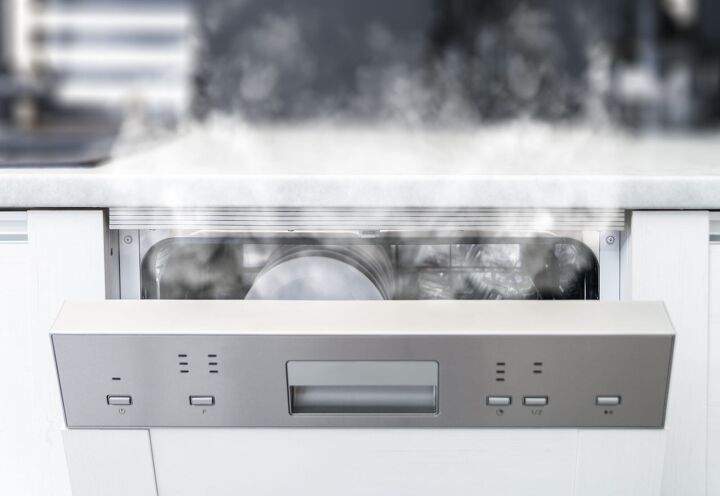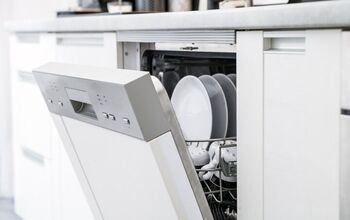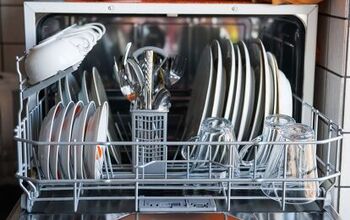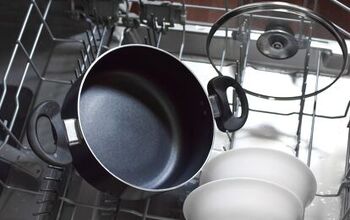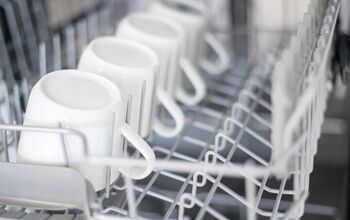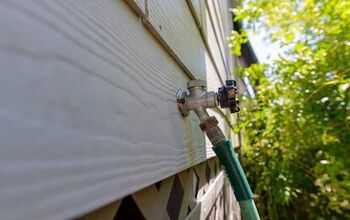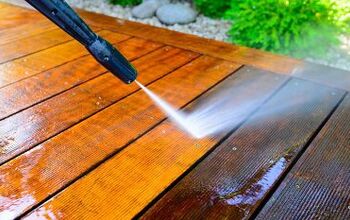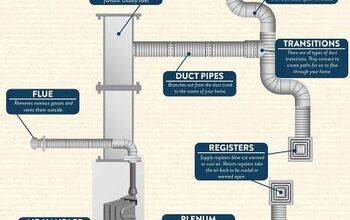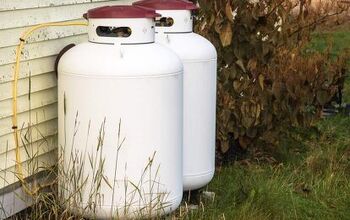Will A Dishwasher Work Without Hot Water? (Find Out Now!)

Dishwashers may seem useless if you don’t have a hot water connection, but that’s not necessarily true. Not every home has a hot water connection that runs to the dishwasher, and that can make it tricky to clean dishes. So, will a dishwasher work without hot water?
A dishwasher will work without hot water if the heating element works even if there is no hot water connection. You can still wash dishes with cold water if you have no hot water connection or working heating element. However, cold water cannot wash dishes as effectively as hot water.
The best thing to do is replace your heating element if it is bad and you have no hot water connection. It is possible to wash dishes with cold water, but it takes much longer and is less effective. Follow along as we explore how a dishwasher will work without hot water?
Do You Need Appliance Installation or Replacement?
Get free, zero-commitment quotes from pro contractors near you.

Will A Dishwasher Work Without Hot Water?
A dishwasher will work without hot water as long as the heating element still works. The dishwasher can heat cold water if you don’t have a hot water supply and it will effectively clean the dishes. However, a broken heat element without a hot water supply is not ideal to clean dishes.
You can still clean the dishes, but the lack of hot water will make it more difficult and take longer. It costs an average of $200 to replace a dishwasher’s heating element and it is worth it if you don’t have hot water. Dishwashers only typically last 10 years, so it is only worth it to replace a defunct heating element if the unit is fairly new.
Otherwise, you can continue to wash loads of dishes without hot water and can still clean them. You will likely need to finish washing each dish by hand depending on their condition if you don’t have hot water. Hot water helps sanitize dishes better than cold water, so it’s ideal to repair your heating element if it is out.
What Temperature Should Dishwasher Be?
A dishwasher should be 120-140 degrees Fahrenheit to effectively clean dishes. Water shouldn’t exceed 140 degrees Fahrenheit or you may damage your dishes or the dishwasher itself. Modern dishwashers feature internal temperature enhancers that keep the water at the appropriate temperature. According to the Consumer Energy Center, approximately 80 percent of the electricity that your dishwasher uses is for heating the water.
Signs Your Dishwasher Isn’t Using Hot Water
If you have any indication that your dishwasher may not be using hot water, there are two main symptoms that you can keep an eye out for:
1. Food still stuck on dishes
Look out for signs that food isn’t being fully washed off of the surfaces of your dishes – particularly the corners. The sprayers in your dishwasher may be reaching the center of the dish, but the water has to be hot enough to dissolve everything. Without hot water, food will remain on the inner rims and surfaces of your dishes.
You may also notice a lingering crust on silverware. Keep an eye out for when your utensils are no longer coming out clean, as this is a sign that the cycles are being run with cold water instead of hot.
2. Dish detergent residue
The detergent that you use in your dishwasher is heavier than conventional dish soap. It’s designed to thoroughly wash your dishes, without creating too many suds inside of the dishwasher. Because of its composition, dishwasher detergent requires strong water pressure and exceptionally hot water to completely wash it away.
If your water pressure is too weak or the water is not hot enough, you’ll often find detergent residue on the dishes and inside of the detergent compartment after the cycle finishes.
What To Do If You Have No Hot Water In Dishwasher
It is important to restore hot water to your dishwasher so that it works as intended. This can be done if you secure a hot water line and repair or replace your heating element. Luckily, there are a few components and methods you can use if you have no hot water in your dishwasher.
Basin Heating Element
Most modern dishwashers feature a heating element in the basin that collects and heats the water. From there, your dishwasher evenly distributes hot water throughout the unit to clean your dishes. Inspect the basin heating element in your dishwasher to look for food scraps or melted plastic that could disrupt it.
It is common for plastic to melt and clog a basin heating element. This will prevent it from working properly. You can clear debris from the heating element, but you may need to replace it if it is damaged.
Do You Need Appliance Installation or Replacement?
Get free, zero-commitment quotes from pro contractors near you.

Flow-Through Heating Element
Unlike a basin heating element, these heating elements are shielded from open exposure. It heats water as it flows through the channels inside the machine, as opposed to heating an entire pool of water. If the flow-through heating element breaks or gets damaged, you will need to access it via the lower housing and replace it.
Hot Water Line
Many dishwashers rely on a combination of a hot water line and a heating element to heat the water. Older dishwashers may not even have a heating element and you can only get heat from the hot water line. You will need to open or unclog a hot water line to wash your dishes if you don’t have a working heating element.
Dishwasher Timer or Thermostat
Last but not least, it’s probably that your dishwasher is using cold water because it doesn’t know that the water should be hot. The machine’s internal thermostat is responsible for indicating where to provide hot water or heat water during a wash cycle. If the thermostat is reading incorrectly or the timer is wrong, the washer may not provide hot water – even if it’s fully capable of doing so.
In this case, you’ll need a professional technician to come out and test the functionality of your thermostat and control timer. They will open up your dishwasher housing and use a multimeter to test each component to determine which needs to be replaced.
Summing It Up
A dishwasher will work without hot water, but it isn’t an ideal way to clean your dishes. You don’t need a hot water line to get hot water in your dishwasher as long as you have a good heating element. Melted plastic and bits of food residue can clog a heating element and cause it to stop working.
Reopen your hot water line and remove clogs to restore hot water to your dishwasher. It is possible to wash dishes with cold water, but you won’t be able to sanitize them as well. Repair or replace your heating element so that you can wash dishes with hot water.

Jessica considers herself a home improvement and design enthusiast. She grew up surrounded by constant home improvement projects and owes most of what she knows to helping her dad renovate her childhood home. Being a Los Angeles resident, Jessica spends a lot of her time looking for her next DIY project and sharing her love for home design.
More by Jessica Stone



